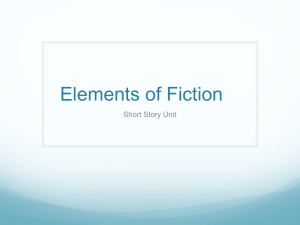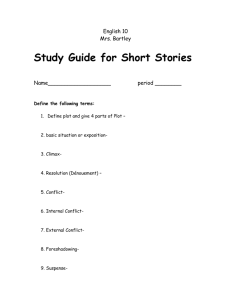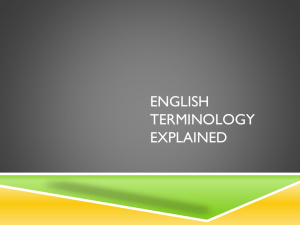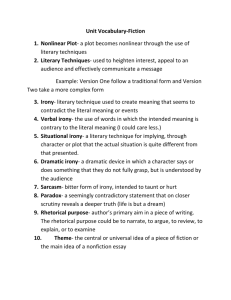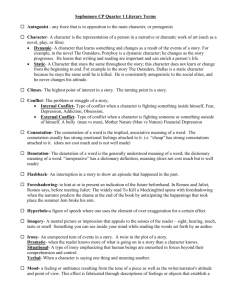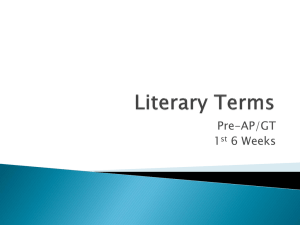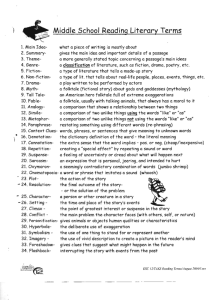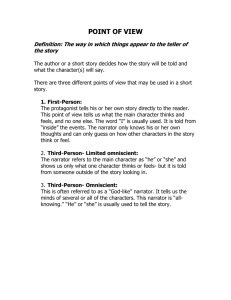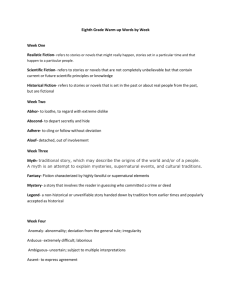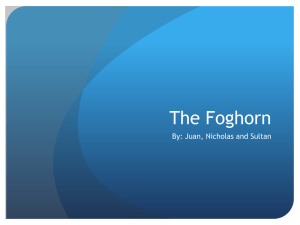Literary Terms
advertisement
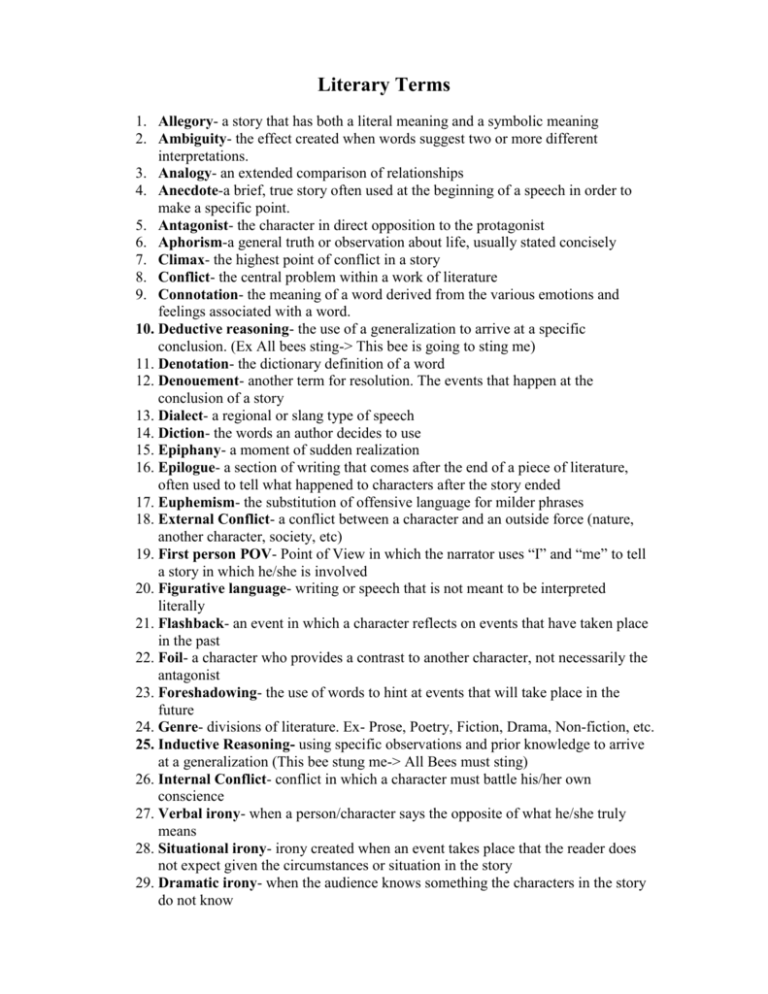
Literary Terms 1. Allegory- a story that has both a literal meaning and a symbolic meaning 2. Ambiguity- the effect created when words suggest two or more different interpretations. 3. Analogy- an extended comparison of relationships 4. Anecdote-a brief, true story often used at the beginning of a speech in order to make a specific point. 5. Antagonist- the character in direct opposition to the protagonist 6. Aphorism-a general truth or observation about life, usually stated concisely 7. Climax- the highest point of conflict in a story 8. Conflict- the central problem within a work of literature 9. Connotation- the meaning of a word derived from the various emotions and feelings associated with a word. 10. Deductive reasoning- the use of a generalization to arrive at a specific conclusion. (Ex All bees sting-> This bee is going to sting me) 11. Denotation- the dictionary definition of a word 12. Denouement- another term for resolution. The events that happen at the conclusion of a story 13. Dialect- a regional or slang type of speech 14. Diction- the words an author decides to use 15. Epiphany- a moment of sudden realization 16. Epilogue- a section of writing that comes after the end of a piece of literature, often used to tell what happened to characters after the story ended 17. Euphemism- the substitution of offensive language for milder phrases 18. External Conflict- a conflict between a character and an outside force (nature, another character, society, etc) 19. First person POV- Point of View in which the narrator uses “I” and “me” to tell a story in which he/she is involved 20. Figurative language- writing or speech that is not meant to be interpreted literally 21. Flashback- an event in which a character reflects on events that have taken place in the past 22. Foil- a character who provides a contrast to another character, not necessarily the antagonist 23. Foreshadowing- the use of words to hint at events that will take place in the future 24. Genre- divisions of literature. Ex- Prose, Poetry, Fiction, Drama, Non-fiction, etc. 25. Inductive Reasoning- using specific observations and prior knowledge to arrive at a generalization (This bee stung me-> All Bees must sting) 26. Internal Conflict- conflict in which a character must battle his/her own conscience 27. Verbal irony- when a person/character says the opposite of what he/she truly means 28. Situational irony- irony created when an event takes place that the reader does not expect given the circumstances or situation in the story 29. Dramatic irony- when the audience knows something the characters in the story do not know 30. Monologue- a dramatic speech or performance made by only one character 31. Omniscient third-person point of view- Point of View in which the narrator tells the story from outside the events using “he”, “she” “they” , but is still about to relay the thoughts and feelings of all characters 32. Oxymoron- a figure of speech that combines two contradictory ideas (jumbo shrimp) 33. Paradox- A statement that seems to contradictory but that actually presents some sort of truth. 34. Parallelism- the repetition of grammatical structure used in poetry or other forms of writing 35. Parody- humorous imitation of a person or idea used in good fun 36. Plot- the sequence of events in a work of literature 37. Limited third-person POV- Point of View in which the narrator tells the story from outside the events using “he”, “she” “they” but only focuses on one character from the story 38. Prose- most typical, standard form of writing 39. Protagonist-the leading character, hero, or heroine of a work of literature or other story 40. Satire- an imitation of a person, idea, social group, etc. that is used to criticize the ideas and values of the subject 41. Setting- the place where the action of a story takes place 42. Soliloquy- a dramatic speech in which a character talks to himself without awareness of the audience or other characters 43. Tone- the attitude of the author towards his/her subject, character, or audience 44. Theme- the central message or meaning of a piece of literature 45. Understatement-the presentation of something as being smaller or less important than it really is
